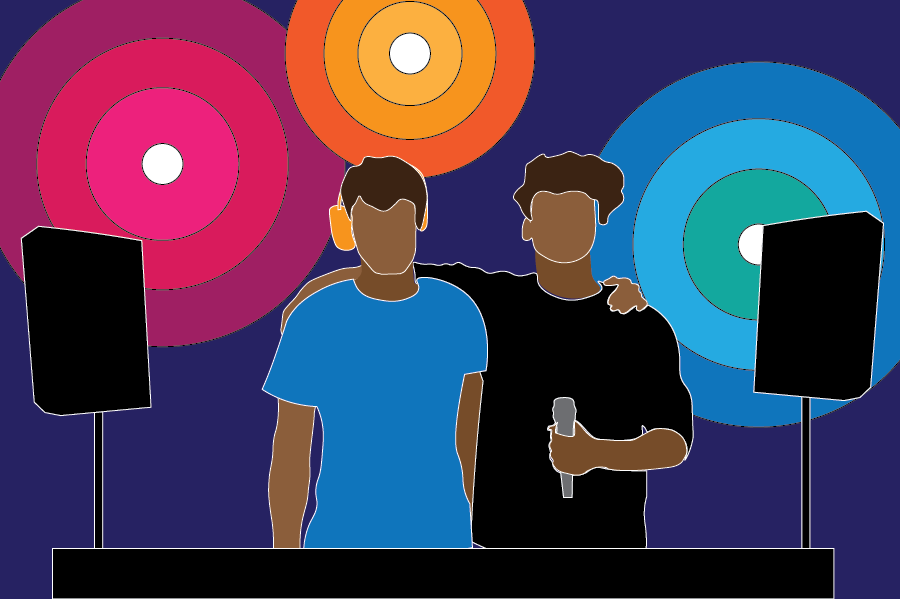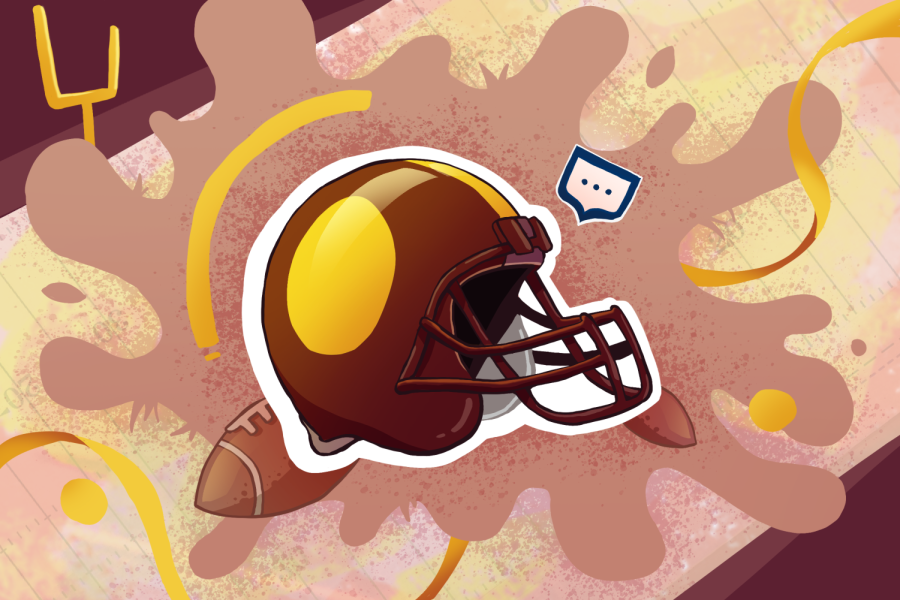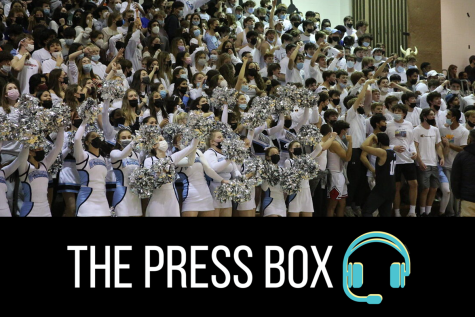Bringing the “Shala-beatz”: juniors Adam and Ali Shalabi mix it up as DJs
These juniors launched Shalabeatz when they were in the fifth grade. After stumbling upon their dad’s speaker system from college, the twins decided to try it out and quickly took interest in DJing.
October 17, 2022
Music blares across Whitman’s carnival-themed baseball field as hundreds of animated teenagers form into a tightly-packed mob, jumping up and down in sync with the beat. The sound of students singing along nearly drowns out the music entirely — and in the center of it all are DJs Adam and Ali Shalabi, bringing to life the makeshift dance floor with a set of speakers, a mixer and overwhelming spirit.
These juniors launched Shalabeatz when they were in the fifth grade. After stumbling upon their dad’s speaker system from college, the twins decided to try it out and quickly took interest in DJing.
Relying on online tutorials and tips on the craft from friends, the Shalabi twins began DJing frequently at home. With three months of practice under their belts, they took their passion to the next level by starting Shalabeatz. The then-elementary school students struggled to get their business off the ground, until a community event gave them the opportunity to develop the experience and name-recognition they needed. The twins kickstarted Shalabeatz a month later at a neighborhood block party.
“As soon as you do one party and there are people there, you get connections and people want [you] to do another thing,” Ali said. “It just grows from there.”
In sixth grade, the duo began DJing for ArtStream, a program that offers performing arts classes for people with intellectual and developmental disabilities. They found themselves connecting with the kids there and gaining valuable experience, Adam said.
In recent years, the Shalabeatz has steadily grown and the twin entrepreneurs now DJ at parties, school events like Homecoming and Post-Prom and worked their first wedding. A typical month may consist of between two and seven gigs, but for Adam and Ali, Shalabeatz’s recent success is just the beginning.
“We definitely want to see it expand,” Ali said. “Not only to local events, but if we could get [gigs] maybe out of state.”
Spanish teacher and SGA sponsor Kathleen Bartels helped organize the 2021 and 2022 homecoming celebrations, which featured the Shalabeatz as DJs. The twins understood students’ music preferences better than previous DJs, she said. Since past years’ homecoming events lacked student engagement, Bartels was grateful for the twins’ ability to unite a crowd and generate excitement for the event.
“For the first time, the students felt a personal connection to the music,” Bartels said. “Tons of people were dancing.”
Bartels also noted that the Shalabis were an independent act; they arrived prepared with all necessary equipment and didn’t require assistance, she said.
During events, the twins challenge the audience to match their own energy, directly addressing them and leading party games. They put emphasis on sound quality and fine-tune the equipment settings to adapt to each venue’s acoustics. The twins have also learned to quickly resolve technical problems — a critical skill for any successful DJ.
Early on in their careers, Adam and Ali experienced a technical malfunction that taught them to think quickly on their feet. The Shalabis were using their microphone to lead a game of limbo at a party when the microphone got too close to a speaker and created a piercing feedback noise. Although the seconds-long disturbance was relatively minor, it was rattling for the twins, Ali said.
Adam and Ali have endured similar performance malfunctions since then, but believe that their shows’ quality has steadily improved since their first gigs in 2017.
“We would have moments where the sound would cut out or it would sound distorted or something like that,” Adam said. “There were just a lot of interruptions. We’ve gotten rid of all those throughout the years.”
Before any event, the Shalabis work with clients to curate a personalized playlist that aligns with their music taste and interests. They also work throughout the show to adapt to their clients’ feedback and requests, Adam said.
Beyond improving their own DJing technique, owning and operating a business has taught the twins lessons that they carry with them outside of the DJ booth. For Adam, DJing for Shalabeatz has taught him to relax in high-pressure situations and avoid anxiety about achieving perfect performances.
“Originally, I was really worried about getting everything right,” Adam said. “With something like this, you just have to make sure everybody’s enjoying themselves.”
While the success of their business is meaningful, nothing brings more satisfaction to the Shalabis than seeing the impact of their work on others, Adam said. For the twins, witnessing their music bring joy to a crowd makes any gig worth it.
“We want to spread the fun of having parties, music and people dancing,” Ali said. “We want to share that with other people.”








jim ralston • Oct 20, 2022 at 9:38 am
A great article about a pair of talented Whitman Juniors. While reading I felt like I was at one of their joyous performances. I appreciate their affiliation with Art Stream too.